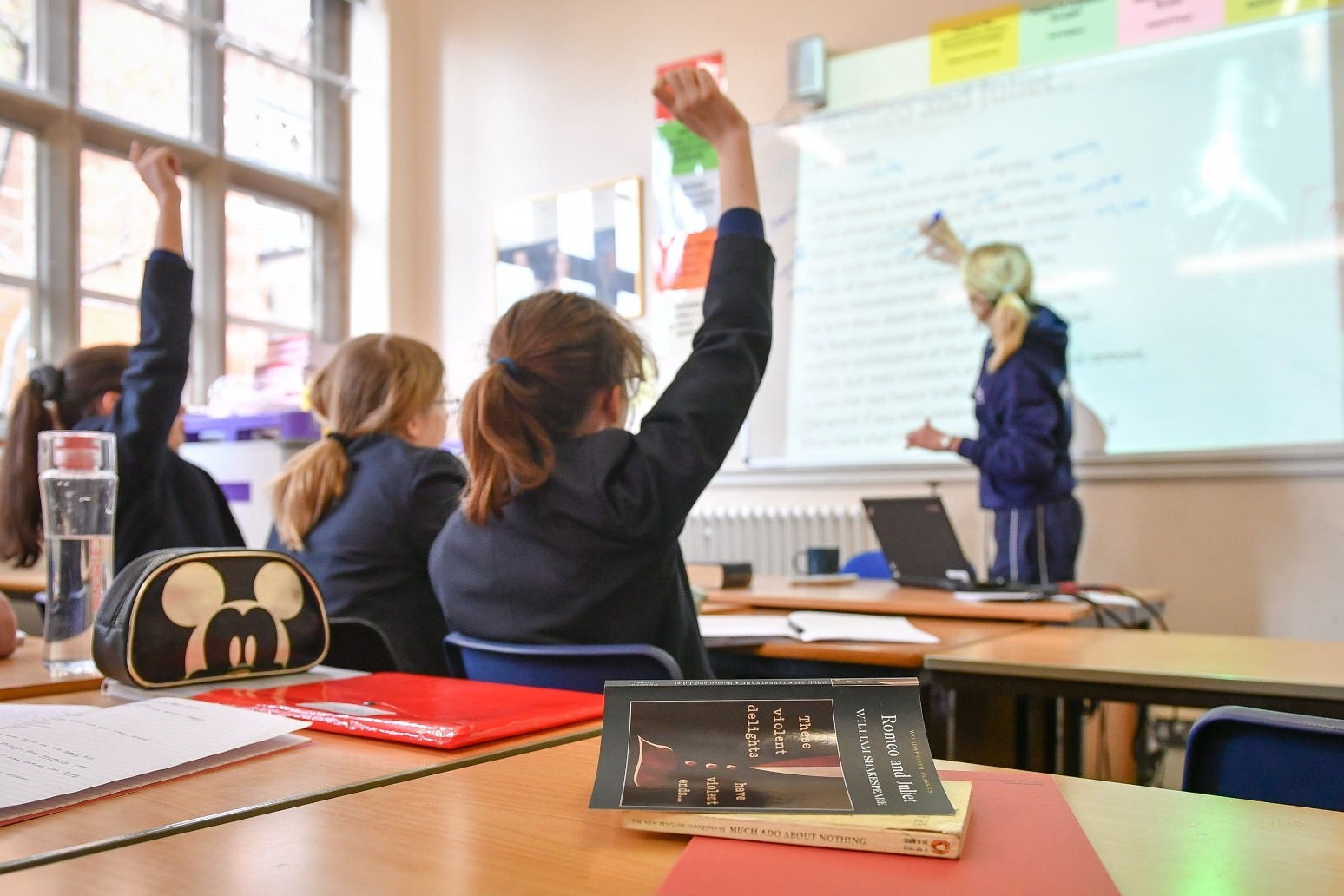-
 play_arrow
play_arrow
Chorley ONE Local Radio for Chorley
Disruptive pupils parents should be forced to co operate with schools report


Teachers should be given powers to compel parents of disruptive children to engage with them – tackling the “burgeoning crisis of behaviour” in schools, a report has said.
Schools should be able to escalate concerns to other agencies on “safeguarding grounds” when parents refuse to co-operate, according to a paper from the think tank set up by Sir Tony Blair.
The report from the Tony Blair Institute for Global Change (TBI) came amid warnings of challenging behaviour in classrooms following the pandemic.
It has called for a “reset” of the parent-teacher relationship in England’s schools, warning that poor behaviour is “crushing learning outcomes” and driving teachers out of the profession.
The Government should make fixing the behaviour crisis in schools an “urgent priority”, the paper from the former Labour prime minister’s think tank said.
The report said: “Schools should be given the power to compel families to come to the table and agree an action plan when a pupil’s behaviour becomes severely disruptive.
“Where families refuse to engage, teachers need to be dealt a stronger hand.
“If parents fail to attend disciplinary meetings or engage with an action plan, schools should be able to escalate concerns to other relevant agencies on safeguarding grounds.
“The Government should consider if any legal powers similar to those used to address repeated absence without a good reason should apply when parents refuse to co-operate repeatedly and without substantive grounds.
“Schools should also be given a stronger statutory role in driving multi-agency working, with powers to convene, co-ordinate and lead meetings where appropriate.”
Parents in England face higher fines if they take their children out of class without permission this year as part of a Government drive to boost attendance since the pandemic.
But the report said teachers currently cannot compel parents to attend meetings if they have concerns about their child’s behaviour.
Alexander Iosad, acting director of government innovation at TBI, said: “Today’s report shows that teachers are powerless and unsupported to tackle a rising epidemic of disruptive and dangerous behaviour.
“We must shift the balance of authority back in favour of teachers and give them the support they need.”
He added: “Let’s be clear; this is not just a challenge, it is a safeguarding issue.
“Schools should therefore become statutory partners in safeguarding and should have the authority to compel parents and other agencies like the police, NHS and social services to come together and agree an action plan.
“Only by giving teachers the power to address poor behaviour not just in the classroom but at its source will we be able to keep teachers in the profession.”
Pepe Di’Iasio, general secretary of the Association of School and College Leaders (ASCL), said many schools are “experiencing challenging behaviour” from students and the issue appears to have worsened since the pandemic “when normal behaviours and routines were disrupted”.
He added: “The idea of giving teachers a statutory authority to force parents to engage is certainly novel, but we would be concerned that such a policy would create a significant additional burden on schools and exacerbate tensions with parents.
“Instead, we need to be looking to create conditions that allow schools to work together constructively with parents, as well as external agencies where necessary, in the best interests of children and young people.”
Paul Whiteman, general secretary of school leaders’ union the NAHT, said: “Whilst no doubt well-meaning, many of the recommendations presented in this report are misguided and unworkable.
“Furthermore, some of the alarmist language used is unhelpful – we must not lose sight of the fact that the large majority of children are well behaved and engage with school positively.”
He added: “There is a real risk that the approach advocated here would not only damage relationships between schools and parents, but also massively increased the workload of teachers and leaders.
“Rather than pushing more responsibility onto schools, the focus should be on rebuilding those agencies that have become depleted and recognising that improving behaviour is a responsibility for everyone.”
A Department for Education spokesperson said: “The surge in challenging behaviour in schools has been left to spiral out of control, leading to countless days of lost learning and devastating children’s life chances.
“As we deliver our Plan for Change, we will break down barriers to opportunity and tackle the root causes of poor behaviour.
“We’ve already announced a significant £1 billion investment in Send, committed to providing access to specialist mental health professionals in every school, and set out plans for new regional improvement teams which will work with schools to ensure the highest standards of behaviour across our classrooms.
“But we know there is more to do, and we will continue to work closely with teachers on how we can further support them to drive-up standards for all our children.”
Published: by Radio NewsHubClick here to read this story in full at Radio News Hub
Written by: admin
Similar posts
Copyright THe Mediasite - 2024









